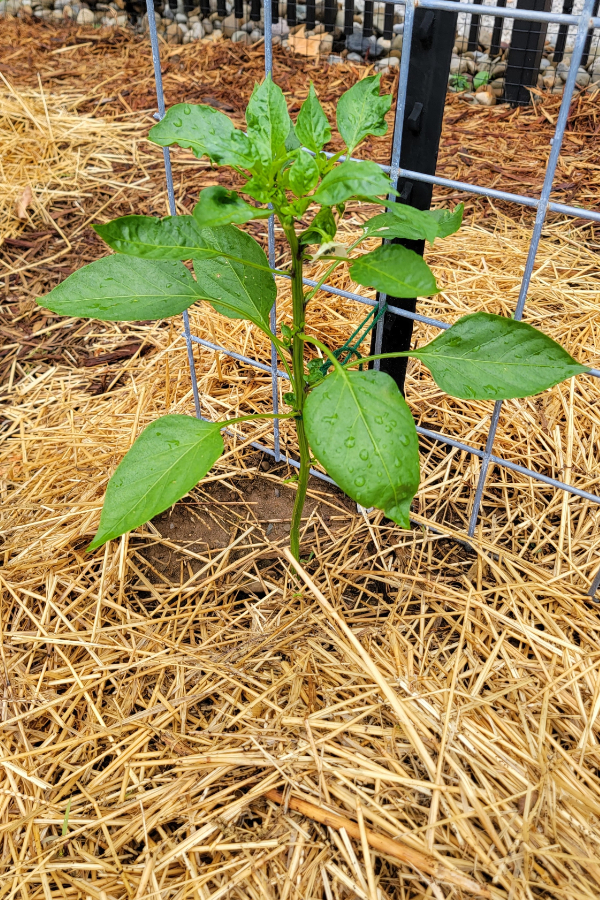Best Fertilizers for Peppers: Make Best Use Of Plant Health and Yield
Best Fertilizers for Peppers: Make Best Use Of Plant Health and Yield
Blog Article
Organic Vs. Synthetic Fertilizers: Which Is Best for Nurturing Healthy Pepper Plants?
In the world of nurturing healthy pepper plants, the choice in between organic and synthetic plant foods stands as a crucial choice with significant implications. While both choices purpose to supply important nutrients to support plant development, the subtleties of their effect on the soil, plant wellness, and the atmosphere stimulate a dispute that mirrors throughout the horticulture community. Recognizing the unique benefits and potential risks of each plant food type is essential for pepper growers seeking to optimize their returns while maintaining an eco-conscious and sustainable method.
Advantages of Organic Plant Foods
Organic plant foods offer a sustainable and environmentally-friendly approach to nourishing pepper plants, providing vital nutrients without the usage of synthetic chemicals. These natural fertilizers are derived from organic resources such as compost, manure, bone dish, and algae, promoting dirt health and wellness and biodiversity. Unlike artificial plant foods, natural alternatives release nutrients slowly, ensuring a well balanced and steady supply for pepper plants to prosper.
One considerable advantage of natural fertilizers is their capability to boost dirt structure and water retention. By enhancing soil health, organic plant foods advertise beneficial microbial activity, which helps in nutrient uptake by pepper plants. In addition, organic plant foods minimize the threat of chemical run-off, protecting water resources from contamination and protecting the environment.
Moreover, natural plant foods add to lasting dirt fertility by advertising the growth of beneficial dirt microorganisms. These microorganisms assist damage down raw material, releasing nutrients in a type that is easily accessible to pepper plants. best fertilizers for peppers. By cultivating a healthy soil community, natural plant foods sustain lasting pepper cultivation methods that benefit both plants and the atmosphere
Disadvantages of Artificial Fertilizers
Artificial plant foods, in comparison to their natural equivalents, pose different negative aspects when used to nurture pepper plants, influencing both plant wellness and environmental sustainability. One significant downside of artificial fertilizers is their propensity to leach nutrients from the dirt rapidly.
Additionally, the overuse of artificial plant foods can add to water air pollution. Excess fertilizers not absorbed by plants can get rid of right into water bodies, leading to eutrophication, where algae flowers deplete oxygen degrees in the water, hurting water life. Artificial fertilizers are commonly obtained from non-renewable sources, such as fossil fuels, adding to carbon discharges and environmental degradation throughout their production.
Nutrient Absorption Comparison
Efficient nutrient absorption plays an essential function in the overall health and development of pepper plants. When comparing natural and artificial plant foods in regards to nutrient absorption, natural fertilizers have the benefit of supplying a much more balanced and slow-release source of nutrients (best fertilizers for peppers). Organic plant foods contain a selection of macro and micronutrients that are not only beneficial for the plants however also advertise healthy dirt microbial task, which assists in nutrient uptake. On the various other hand, synthetic plant foods commonly provide a fast release of nutrients, which can lead to leaching and drainage, leading to reduced nutrient absorption prices by the plants.
In addition, natural plant foods boost soil structure and water retention capability, enabling pepper plants to gain access to nutrients extra effectively. This more enhanced soil top quality assists in origin growth, allowing much better nutrient absorption. Artificial fertilizers, although at first improving plant development because of their high nutrient concentrations, may hinder long-lasting nutrient absorption by derogatory dirt health and wellness with time.
Environmental Impact Considerations

On the other hand, synthetic fertilizers, although usually more concentrated and immediately readily available to plants, can have harmful impacts on the atmosphere if not used correctly (best fertilizers for peppers). Their production requires high power inputs, resulting in greenhouse gas discharges and adding to environment adjustment. Furthermore, the drainage of excess synthetic plant foods can pollute water resources, causing eutrophication and harming marine environments.
Ideal Plant Food Practices for Peppers
When fertilizing pepper plants, optimizing nutrient uptake and decreasing ecological effect are key factors he has a good point to consider. To attain this, it is important to comply with ideal fertilizer methods customized to the certain needs of pepper plants. One important technique is to perform a soil test prior to applying any kind of plant foods. This test can establish the pH level of the dirt and recognize any nutrient deficiencies, directing you in choosing one of the most suitable fertilizer formulation.
Another crucial method is to feed pepper plants at the appropriate time. Commonly, peppers gain from getting plant food at planting and then once more when they begin to blossom. Over-fertilizing can cause vitamins and mineral imbalances and harm the plants, so it is vital to adhere to recommended application rates.
Additionally, picking a balanced plant food with an NPK ratio that fits pepper plants' needs is basic. Organic fertilizers, such as compost or manure, can be outstanding choices as they release nutrients slowly and improve soil framework in time. Nonetheless, artificial fertilizers can give a fast nutrient increase when needed. Ultimately, integrating natural and artificial plant foods judiciously can aid nurture healthy pepper plants while decreasing environmental impact.
Conclusion

Organic plant foods use a sustainable and environmentally-friendly approach to beneficial pepper plants, offering important nutrients without the usage of artificial chemicals. Unlike synthetic plant foods, organic options release nutrients slowly, making sure a steady and balanced supply for pepper plants to flourish.
Artificial plant foods, see this in comparison to their organic equivalents, present numerous negative aspects when made use of to nurture pepper plants, impacting both plant health and ecological sustainability. When contrasting artificial and natural plant foods in terms of nutrient absorption, organic plant foods have the advantage of supplying a more balanced and slow-release resource of nutrients.Moreover, natural fertilizers enhance soil framework and water retention capacity, allowing pepper plants to accessibility nutrients much more efficiently.
Report this page